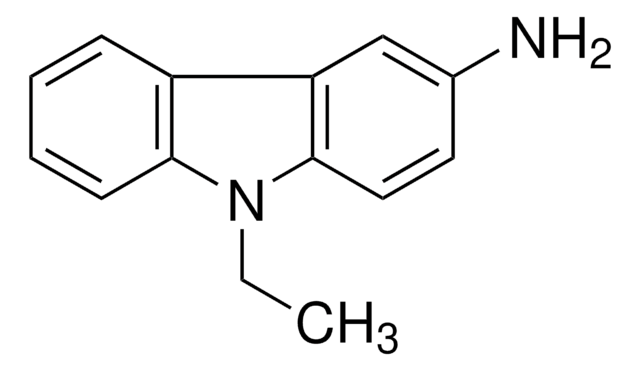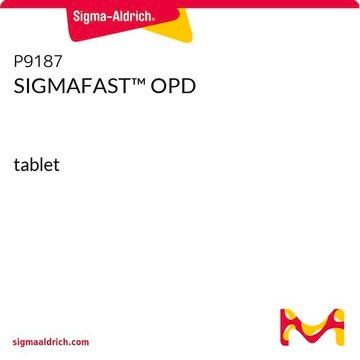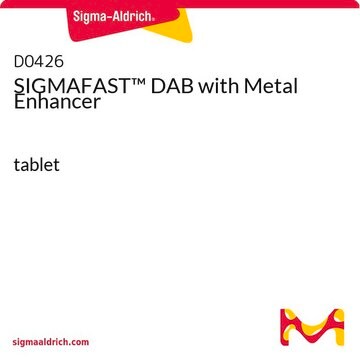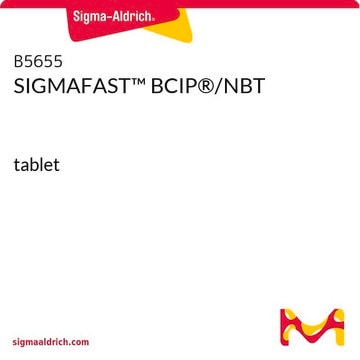AEC101
AEC Staining Kit
liquid
Synonyme(s) :
ACE substrate kit
About This Item
Produits recommandés
Forme
liquid
Niveau de qualité
Utilisation
sufficient for ≥1,000 tests (150 ml substrate solution)
Température de stockage
2-8°C
Application
- for developing the extravidin peroxidase antibody in cell-seeded matrice sections using histology and immunohistochemistry methods
- for streptavidin-horseradish peroxidase in peripheral blood mononuclear cells in ex vivo enzyme-linked immunospot (ELISPOT) assay
- for mouse IgG biotinylated secondary antibody in immunohistostaining of epididymal fat pads
Conditionnement
Attention
Produit(s) apparenté(s)
Mention d'avertissement
Danger
Mentions de danger
Classification des risques
Acute Tox. 4 Dermal - Acute Tox. 4 Inhalation - Carc. 1B - Eye Irrit. 2 - Flam. Liq. 3 - Repr. 1B
Code de la classe de stockage
3 - Flammable liquids
Classe de danger pour l'eau (WGK)
WGK 3
Point d'éclair (°F)
134.6 °F - closed cup
Point d'éclair (°C)
57 °C - closed cup
Certificats d'analyse (COA)
Recherchez un Certificats d'analyse (COA) en saisissant le numéro de lot du produit. Les numéros de lot figurent sur l'étiquette du produit après les mots "Lot" ou "Batch".
Déjà en possession de ce produit ?
Retrouvez la documentation relative aux produits que vous avez récemment achetés dans la Bibliothèque de documents.
Les clients ont également consulté
Protocoles
Use this protocol to for the entire immunohistochemistry (IHC) procedure through staining and visualization of specific antigens in paraffin-embedded tissue sections.
Use this protocol to for the entire immunohistochemistry (IHC) procedure through staining and visualization of specific antigens in paraffin-embedded tissue sections.
Use this protocol to for the entire immunohistochemistry (IHC) procedure through staining and visualization of specific antigens in paraffin-embedded tissue sections.
Use this protocol to for the entire immunohistochemistry (IHC) procedure through staining and visualization of specific antigens in paraffin-embedded tissue sections.
Notre équipe de scientifiques dispose d'une expérience dans tous les secteurs de la recherche, notamment en sciences de la vie, science des matériaux, synthèse chimique, chromatographie, analyse et dans de nombreux autres domaines..
Contacter notre Service technique











